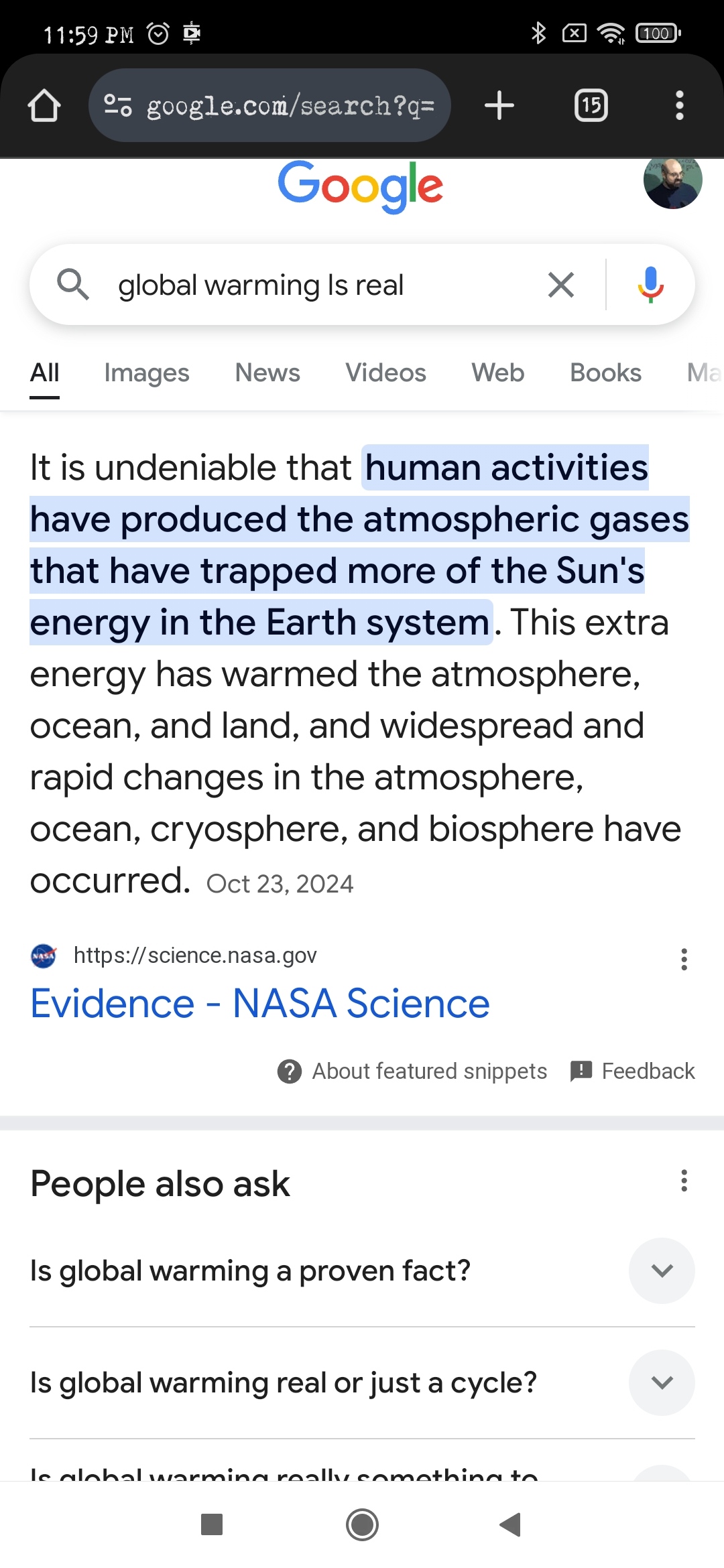Let’s start with a simple question posed to Google. What impact does war have on global warming?
This from svet.charita.cz
How does the military sector contribute to climate change? Militaries consume enormous amounts of fossil fuels, which have a high carbon footprint. The global military carbon footprint is the fourth highest, ranking behind the US, China and India. If the US military alone were counted as a separate country, it would be among the biggest polluters of our planet. Some military emissions are not necessarily specific to wartime, but they increase significantly during combat. Among the largest sources are jet fuel for planes and diesel for tanks and naval ships. Other sources are the production of weapons and ammunition, or the deployment of troops. And of course the havoc wreaked by bombing, including fires and smoke. There is also a huge increase in demolition material and rubble from the wreckage of buildings during conflicts. Destroyed buildings represent a huge amount of difficult-to-recycle construction waste. Waste management in countries affected by war often lagged behind even before the outbreak of conflicts.
Wars also destroy wildlife and biodiversity. The collateral damage of conflict can kill up to 90 percent of large animals in an area. In many places, local endangered species are threatened with extinction. In addition, wars cause pollution that contaminates waters, soil and air, making life unsafe for people. When wars and conflicts break out, people flee to safety either within their own country or across borders. Migration waves like these also place a significant burden on the environment.
The world’s militaries are responsible for 5.5% of global greenhouse gas emissions. Yet many governments do not provide data on emissions from military activities, so the figure may be significantly higher. Already, military conflicts produce more annual greenhouse gas emissions than the aviation and shipping industries combined. But the documentation of military emissions has long been overlooked. It was only with the start of the Russian invasion of Ukraine that the first attempt was made to comprehensively document and assess greenhouse gas emissions during wartime conflict.
The war in Ukraine produced more emissions than the entire Czech Republic.

The Guardian agrees with this assessment:
The planet-warming emissions generated during the first two months of the war in Gaza were greater than the annual carbon footprint of more than 20 of the world’s most climate-vulnerable nations, new research reveals. The vast majority (over 99%) of the 281,000 metric tonnes of carbon dioxide (CO2 equivalent) estimated to have been generated in the first 60 days following the 7 October Hamas attack can be attributed to Israel’s aerial bombardment and ground invasion of Gaza, according to a first-of-its-kind analysis by researchers in the UK and US.
According to the study, which is based on only a handful of carbon-intensive activities and is therefore probably a significant underestimate, the climate cost of the first 60 days of Israel’s military response was equivalent to burning at least 150,000 tonnes of coal. The analysis, which is yet to be peer reviewed, includes CO2 from aircraft missions, tanks and fuel from other vehicles, as well as emissions generated by making and exploding the bombs, artillery and rockets. It does not include other planet-warming gases such as methane. Almost half the total CO2 emissions were down to US cargo planes flying military supplies to Israel. Hamas rockets fired into Israel during the same period generated about 713 tonnes of CO2, which is equivalent to approximately 300 tonnes of coal – underscoring the asymmetry of each side’s war machinery.

The conversation.com also agrees
Armed conflict leaves a long trail of environmental damage, which in turn can worsen our health and that of other species. Chemical weapons and pollution from weapons stay in the environment as a toxic legacy. Explosives release pollutants such as depleted uranium into soil, while landscapes can be destroyed by troop movement and the breakdown of infrastructure. The damage can last far longer than you’d think. The bloody WWI Battle of Verdun in France left the once-fertile farmland contaminated. Over a century later, no one can live in the Red Zone due to the threat from unexploded bombs.
As the Russia-Ukraine war wears on, severe air pollution, deforestation and soil degradation have mounted. Conflict also causes habitat loss and decreased biodiversity. Between 1946 and 2010, wildlife noticeably declined in African nations affected by armed conflict. Landmines are particularly bad, as they are designed to remain in place until stepped on. Long after a war ends, they can still kill people or animals. Landmines also cause degradation and limit access to safe land, which can then become over-exploited. Landmines have been unearthed by flood waters in Libya, Ukraine, Lebanon and Bosnia Herzegovina.

There is an answer as to why. It comes from the converse question: Is war good for the oil business?
The answer is yes but of course you have to let people have their say. Even Noam Chomsky agreed that Nazis should have their say. A first example of double talk gibberish comes from Quora and a statement by Michael Mossman, some kind of authority on oil economics from England.
Sources of significant wealth are often the cause of wars. Whether the war is good or bad depends on which side you are on. The Iraq Wars were said by some to be a wars for oil, the implication being that the West expelled Saddam Hussain’s army from Kuwait and then later invaded Iraq to topple Sadam so they could take the oil. This is a total misrepresentation of what happened. After Saddam was expelled from Kuwait the ownership and revenue of the Oilfields return to Kuwait not to Western Oil Companies. Similarly when Saddam was defeated and overthrown Iraqi oil remained the property of Iraq. Some Western Companies were awarded contracts to help upgrade the facilities and operate some of the fields, but this did not give them ownership of the oil.
These wars were fought for many reasons, one of which was having access to oil, not to own and control it.

A second opinion from someone named Roy Chambers also comes from Quora
This is complicated because it depends on the company and the long and short term aspects. War is often necessarily to resolve instability issues in a region or the world, with the peace dividend at the end of war being very profitable as new markets open up. Wars have literally been fought directly for the purpose of trade, in particular with China, where multiple wars have been fought with China to force them to open up to trade, and so wars can be fought to ensure business benefits. Yes, companies can directly profit from war, because they get large scale military production projects, R&D funding and so on, which may or may not be very profitable, but as there is often no competition, those profits are guaranteed. But at the same time, companies are not that keen on being bombed or having their factories taken from them by an invading army and their workers enslaved
During war, government spending goes towards military matters, so that takes money out of other parts of the economy, so while some companies can pivot, others see their profits plummet.
There are often restrictions in resources, from labour through to raw materials. Lot of companies have to reduce production as a result. There are different levels of war, so in a total war scenario the economy is tightly controlled by the government. Maybe your company is nationalised, meaning your business is no longer yours. Perhaps you are forced to make things for the barest proft. It is hard to say.
In the end, war can be devastating for an economy. Whether you factories were all bombed into no existence or your country went into a huge amount of debt, when the war is over, the economy will take decades to recover. For all of the economic growth of countries like Japan and Germany after WWII, that took nearly 2 decades of poverty and suffering to happen. Generally speaking, peace pays a much bigger dividend than war for company profits and economic growth. Arguments that war is what business seeks, focused only on those companies that profit from war, rather than over all. Most companies would prefer peace not war. Of course if you make weapons, you are going to back war.

Euronews seems to understand the overview.
It has been something of a constant in the chronicles of conflicts around the world ever since. Wars are fought over oil, yes. But oil also fuels and funds war. And the fossil fuel industry profits from war. Russia’s full-scale invasion of Ukraine has provided the most comprehensive view yet of this entangled, multifaceted, sinister relationship between oil and war.
Whilst Western governments decry the war in Ukraine, falling over themselves to condemn Russia’s war of aggression and demonstrate support for Ukrainians, they have done very little to disentangle the oil industry from this war. When Russia invaded, oil companies wasted no time in announcing that they were pulling out of Russia, and in December 2022, the EU and the UK implemented an embargo on the import of Russian crude oil.
But Global Witness investigations have revealed the extent of British and European firms’ continued involvement in the trade of Russian oil: in the year after Russia launched its invasion — before the bans came into effect — Western companies traded 533 million barrels of Russian oil including crude oil worth €12.1 billion. Take Shell, for instance. Having claimed it was writing off its Russian assets, it stands to get more than €1bn after Russian gas company Novatek bid for Shell’s stake in a major oil and gas development in the Far East (Sakhalin-II). Last month it was reported that the deal with Novatek to take over Shell’s stake still hasn’t been finalised.

The Brussels Times seems to be even more specific of the profitability of the Ukrainian war
European oil companies have pocketed a total of €3.3 billion in extra revenue since Russia invaded Ukraine at the end of February, which resulted in them hiking up fuel prices. While consumers are hit by unprecedented price hikes, the sector raked in an average of €107 million extra in daily revenues from ramped up prices in March alone, €94 million from the sale of diesel, and €13 million from petrol, new research commissioned by Greenpeace Central and Eastern Europe shows.
In Belgium, more than €2 million in profit was made every day in March, according to calculations, however, most profits were made in Germany, Austria and Italy, where the margins on petrol are the highest. “While millions of Europeans struggle with sky-high fuel and energy costs, the oil industry is driving up prices to reel in record profits on the back of the war and the ongoing energy crisis,” Klara Maria Schenk, climate and transport campaigner for Greenpeace Central Eastern Europe, said.

Commentary
I listen to a lot of arguments that begin with the word we. This is some individual expressing their opinion that group think is in order. They belong to a group and therefore their words represent the desires of the group. This is true as far as they are concerned. Usually there’s not very much discerning effort about who we actually are or who’s words we are repeating. This is even true whether or not the person might, given the opportunity for a little thought and study, disagree with a particular group thought. The only thing that is important is that one feel a part of things. Nobody likes to be isolated. Everybody likes to feel they are apart of a really strong crowd. Ganging up on things, that’s the answer.
I believe however in literacy. This means the ability to read and write. It also has something to do with one’s ability to understand verbal arguments. Do you have any critical thinking skills? This is also expressed by asking if you have the ability to think for yourself.
It’s very difficult to be in these conversations with group people. It’s hard to come to any agreement on anything. The person you’re talking to doesn’t really exist as an individual because they do not have any opinions of their own. They are just filtering along what they have heard through the media and have accepted just as they have accepted their role in the group. They themselves are not really important. What is important is the group and as long as they are reasonably comfortable or at least feel enough fear that their situation would get extremely worse if they went against the group, they are saying the right thing. That is what is most important. Not to say what they believe in but to say what is the right thing to say.
This of course is the reason why there is still war and pollution and the planet is in the process of committing suicide. This is true from the human part of the planet Earth. I’m not really sure forest animals engage in suicide to the extent that people do. But then again, natural animals don’t really have a proclivity for drugs unless you have species who make most of their diet from scavenging from human garbage. Human beings are very good at destroying their own habitat. I believe it is seen as a good and industrious thing and good for the group that people don’t spend too much time at home and keep going out of their house to move around spastically and continuously trying to find enough money to keep the economy going. God forbid that the economy should slip. Keep those trucks rolling, boys. That’s what it’s about.
I am also kind of a group thinker except I belong to the group of folks known as environmentalists. We are the crazy people who say that buying food from a thousand miles away is absolutely not necessary. What is necessary is to eat good healthy food and to try and keep one’s communities alive and well. I believe most environmentalists are pretty happy with the world right in front of their face. This as opposed to our groupthink people who are perfectly happy getting their commands and their food from people who have zero vested interest in the local ecology. There’s a big difference between people who live somewhere and people who use these places for profit centers.

I believe the answer is to stay local and seasonal. I believe the answer lies in walking or bicycling to get where you need to go. I believe the answer lies in modern communications rather than moving your body from place to place. I believe the answer lies in staying away from fossil fuels as much as possible. I agree that the world is what it is and it is almost a ridiculous exercise to try and go back to the 17th century as far as growing your own food is concerned. The world is simply set up otherwise. But the spirit of the argument remains the same. Not believing that our life comes from the health of the planet is probably as close to the definition of individual insanity as any thought ever had by anyone. To believe that our food comes from anywhere else but the land we are standing from is just craziness.
Equally crazy is the belief that destroying the land, the air and the water that is connected with our food sources is somehow right and good. Whether this is specifically to be a part of a group or simply because one is sure that economics is far more important than ecological problems, it’s all the same double speak rhetoric. It’s called blah blah blah. It’s called talking without talking. Gibberish. It’s believing in things that don’t exist simply because they justify personal laziness. It’s not rhetoric that feeds the healthy community, literally it is verbal narcotics. Verbal pollution would also be a good description. Words designed to destroy rather than create long-term sustainable solutions.
I vote for peace. The Utopian! votes for peace. We, myself and all of the people who believe the Utopian! has a vital and valid political opinion would vote for peace.
Nobody’s talking to a trip to the polling station. What we’re talking about is the trip to the market to buy food. What we’re talking about is the trip anywhere to buy anything or to practice any economic activity. The more you believe you need your car, the more you vote for war. The more you believe you have the right to jump in your car whenever you want, the more you vote for suicide.
The Utopian! does not agree that any war on the planet Earth is a righteous one. The Utopian! votes and only votes for peaceful activities, communities working to remain healthy and for the individuals of the community to do their best to be healthy community members. The Utopian! believes that all of this healthy activity is necessary on a human level for all groups and all communities everywhere. Being healthy means being helpful. Fighting is eventually suicide for us all.
All we are saying is give peace a chance. Peace is heaven and war is hell. Tell me again how important it is to bring war into your own home.
For the Utopian!, this is Edna Stayathomehappiness reporting.











